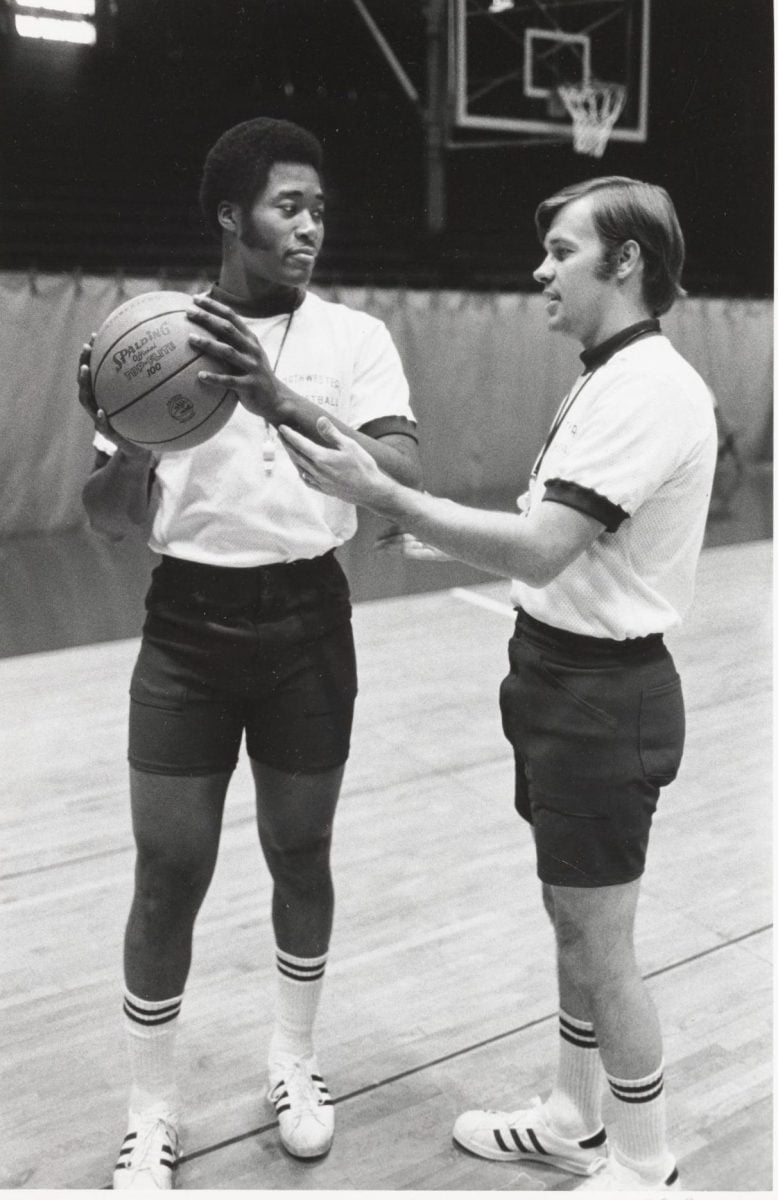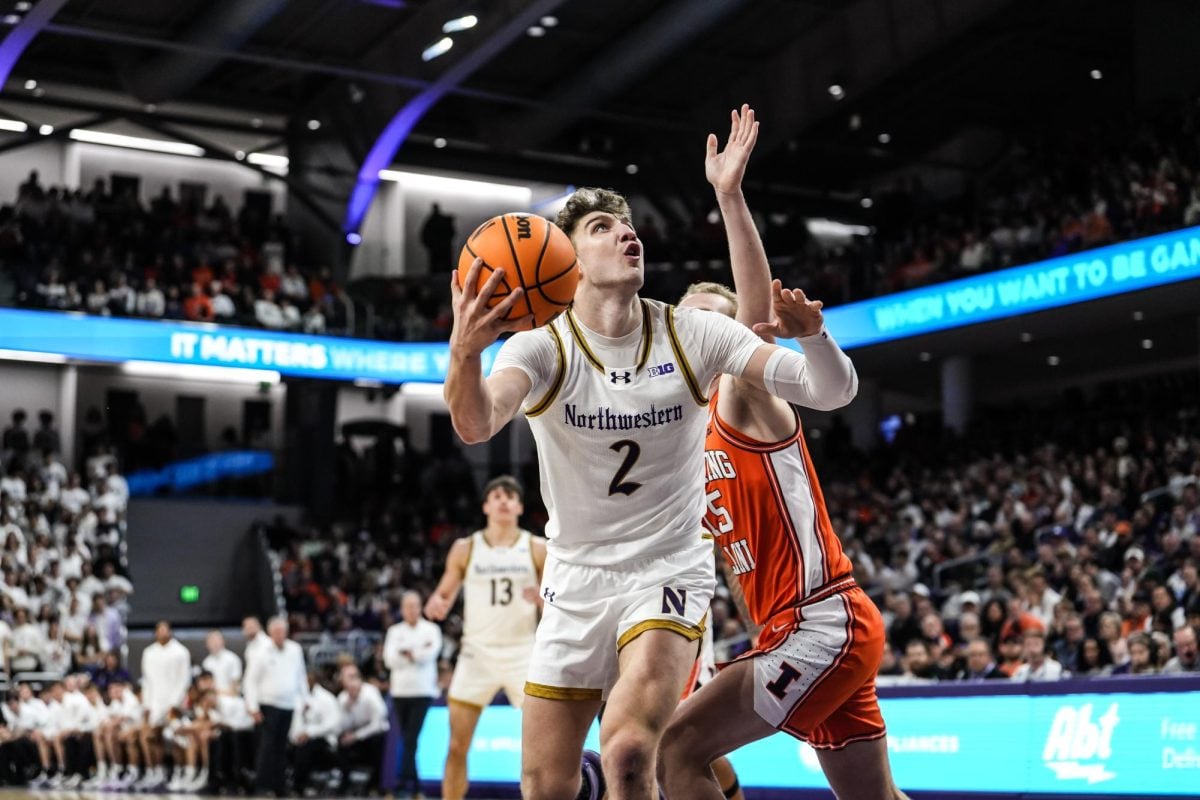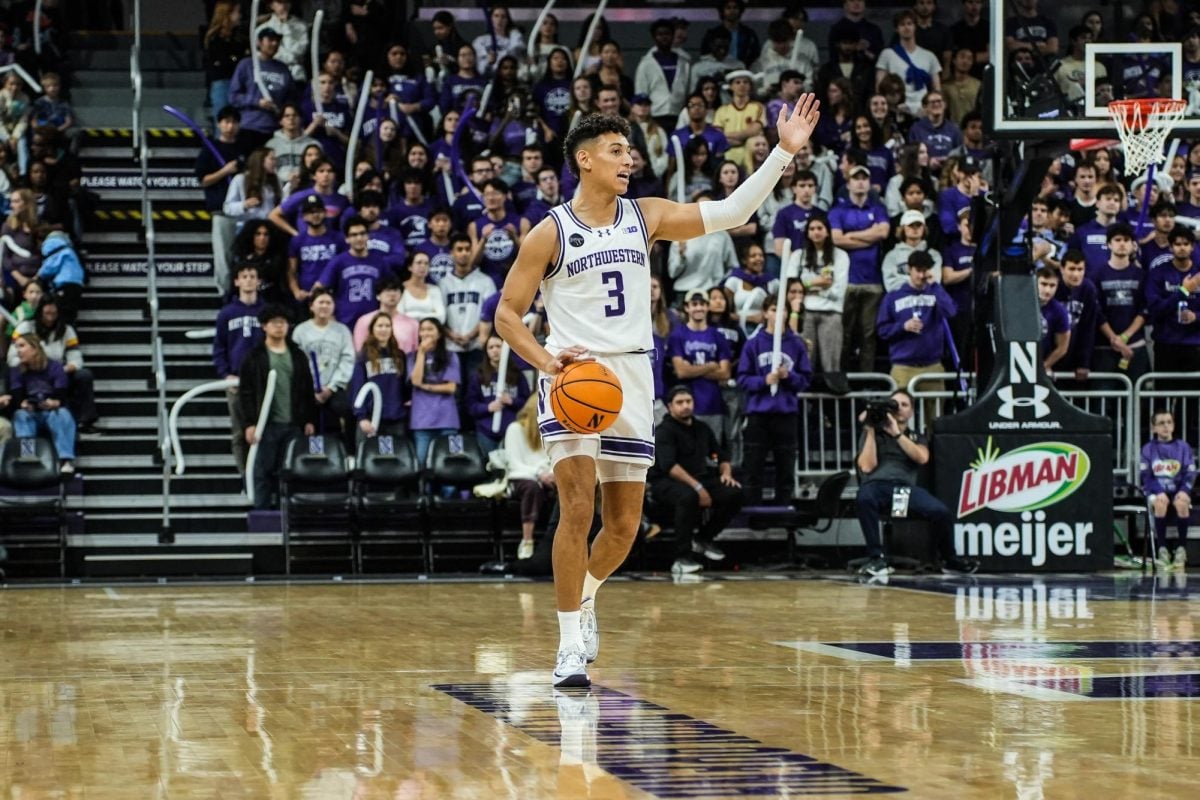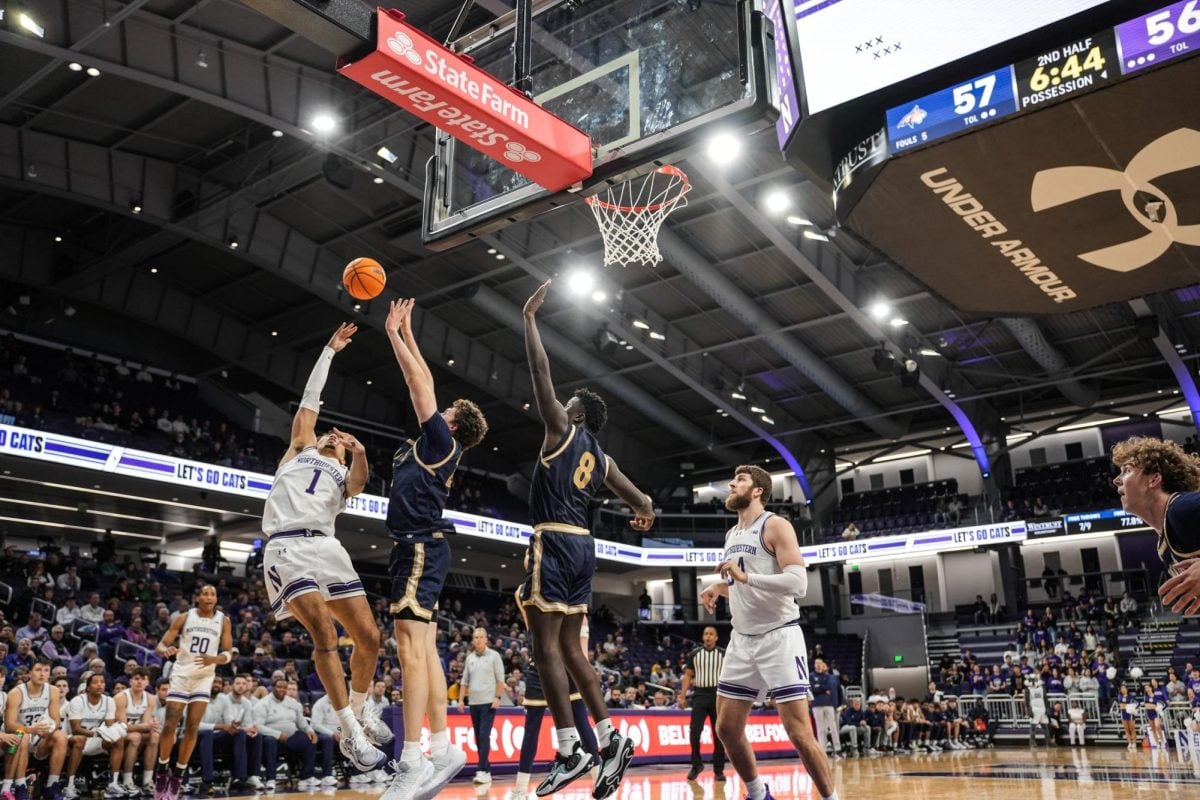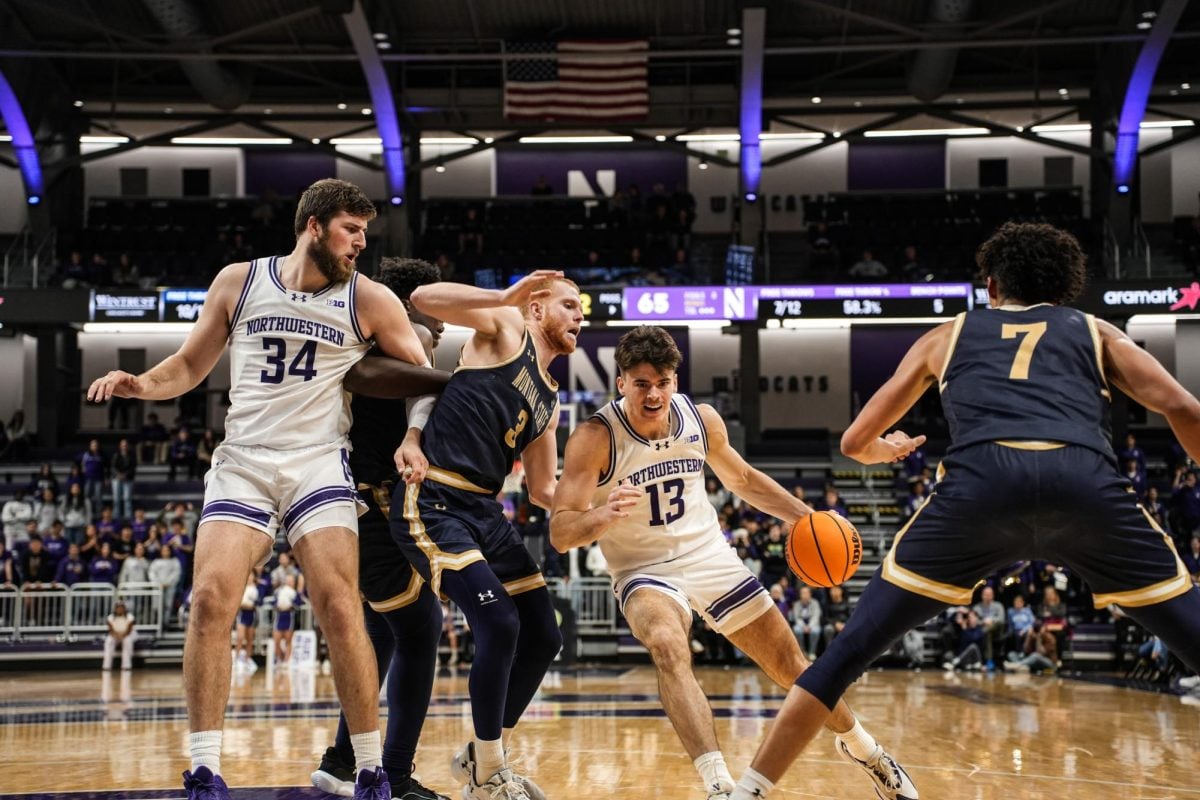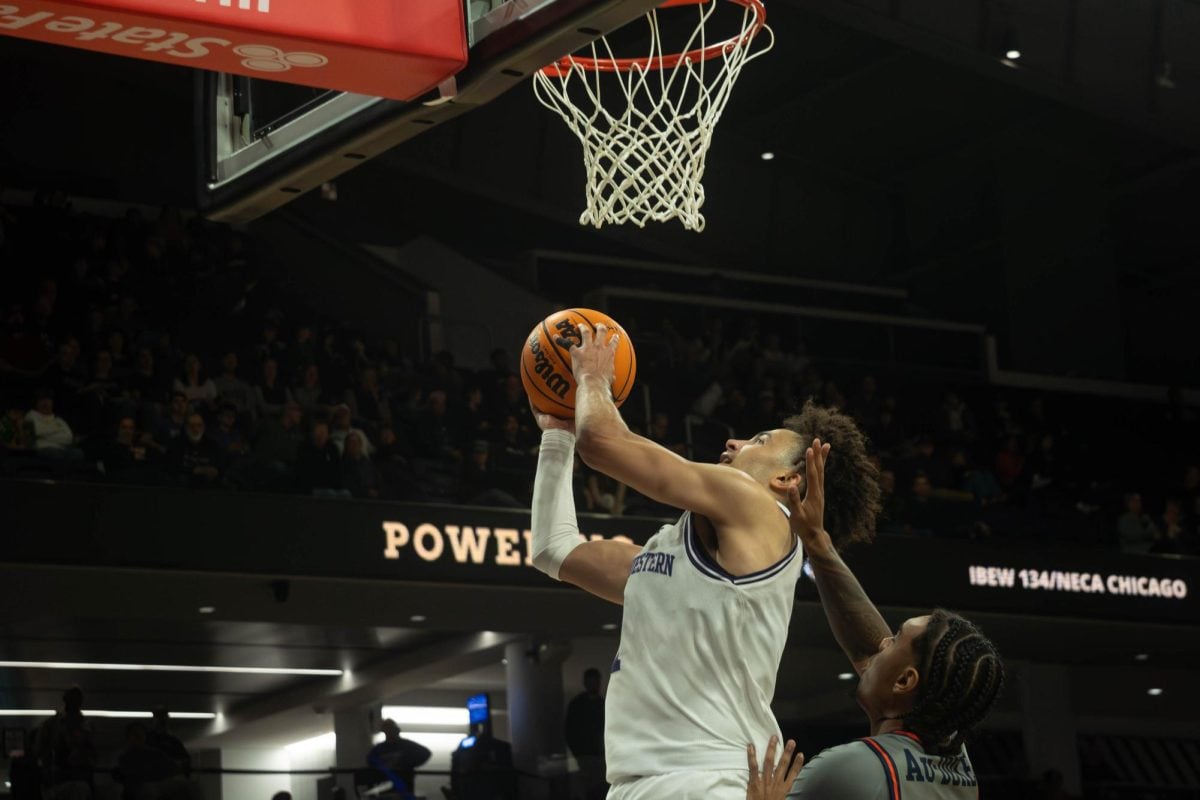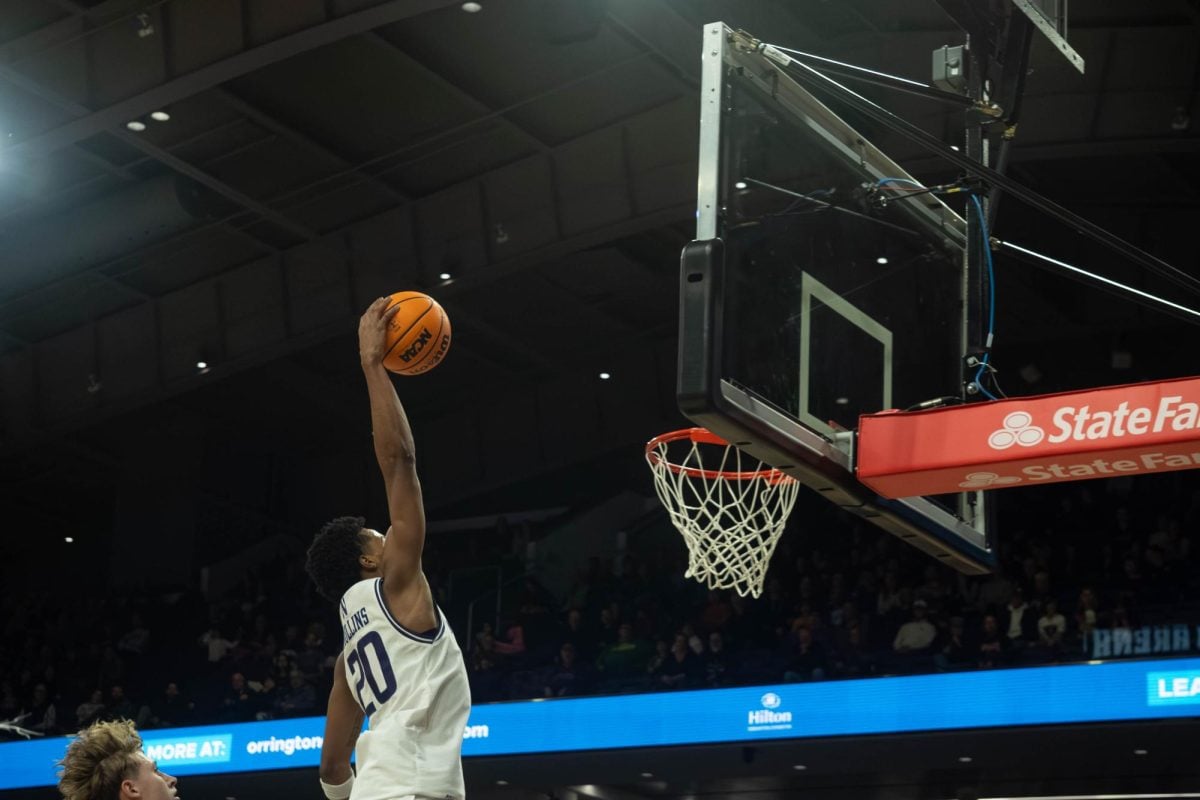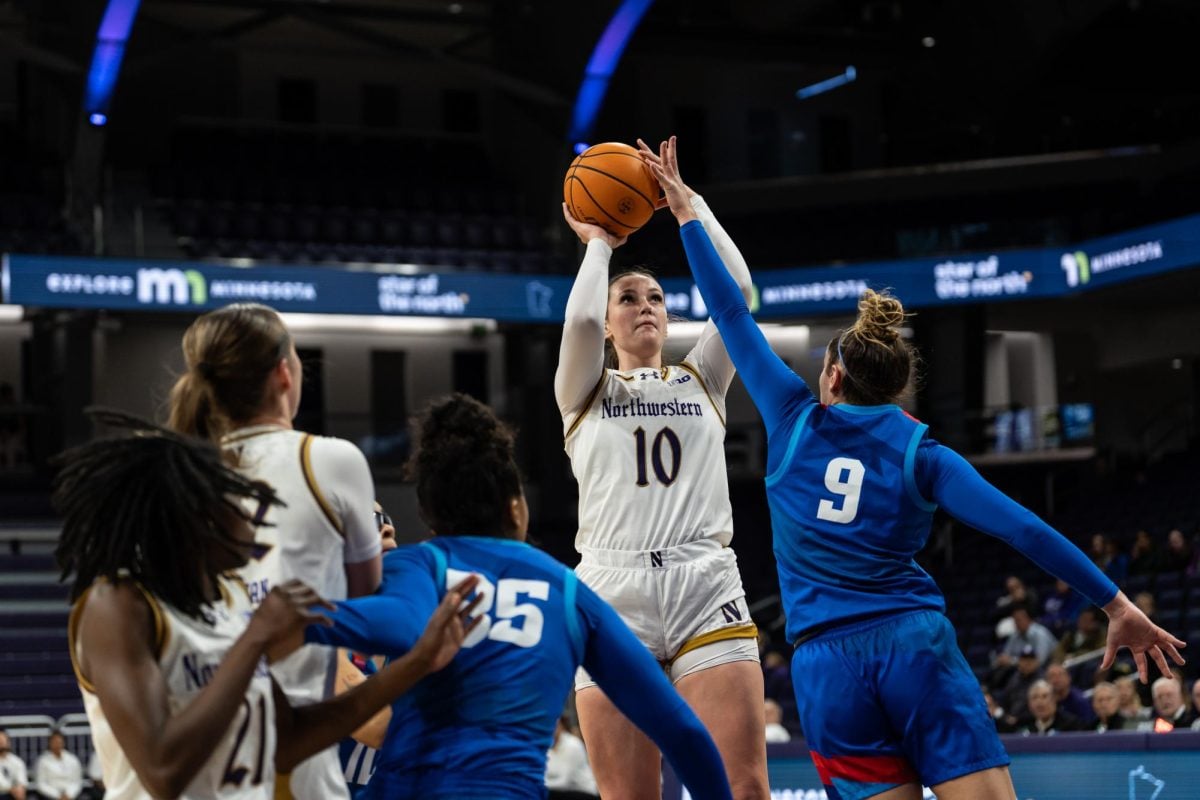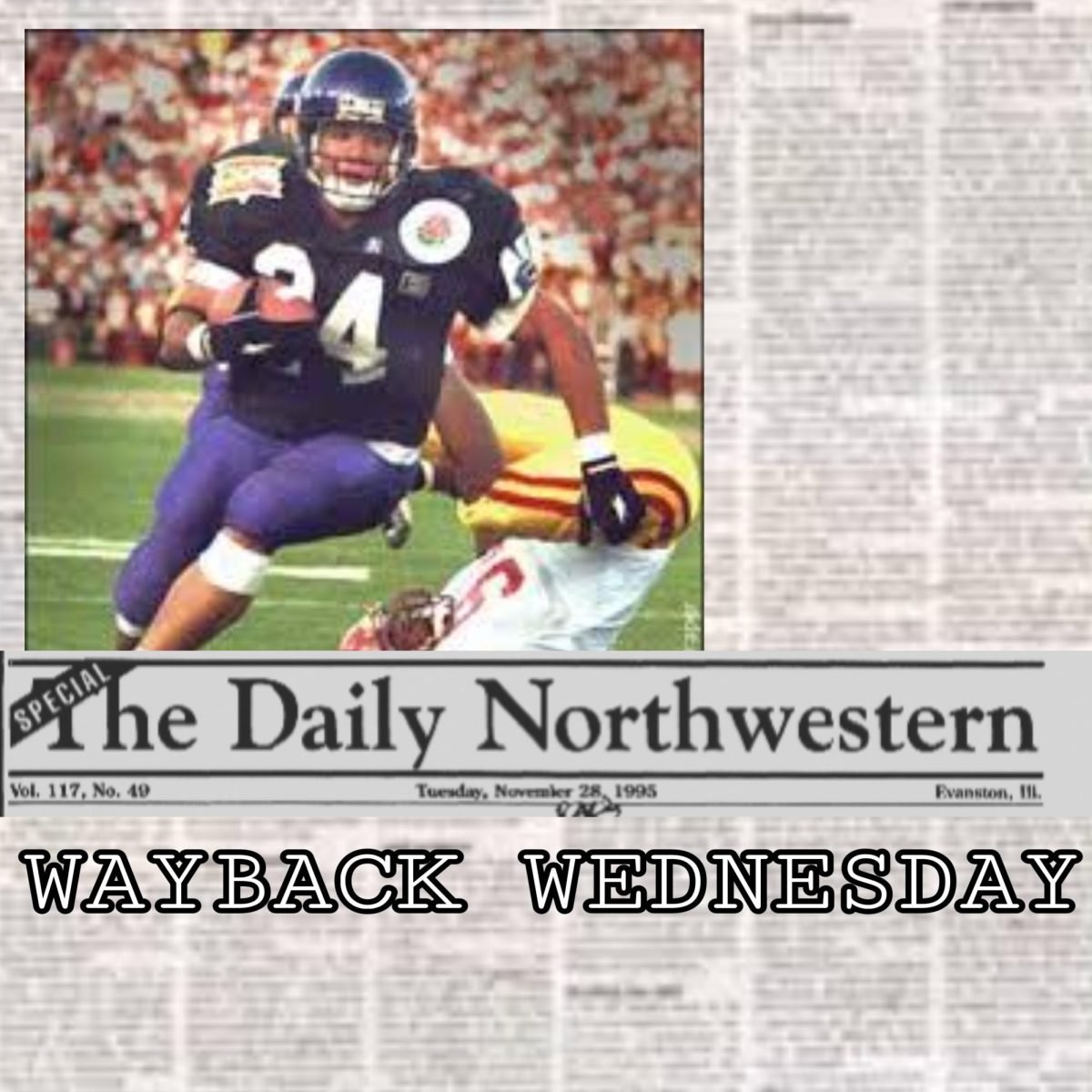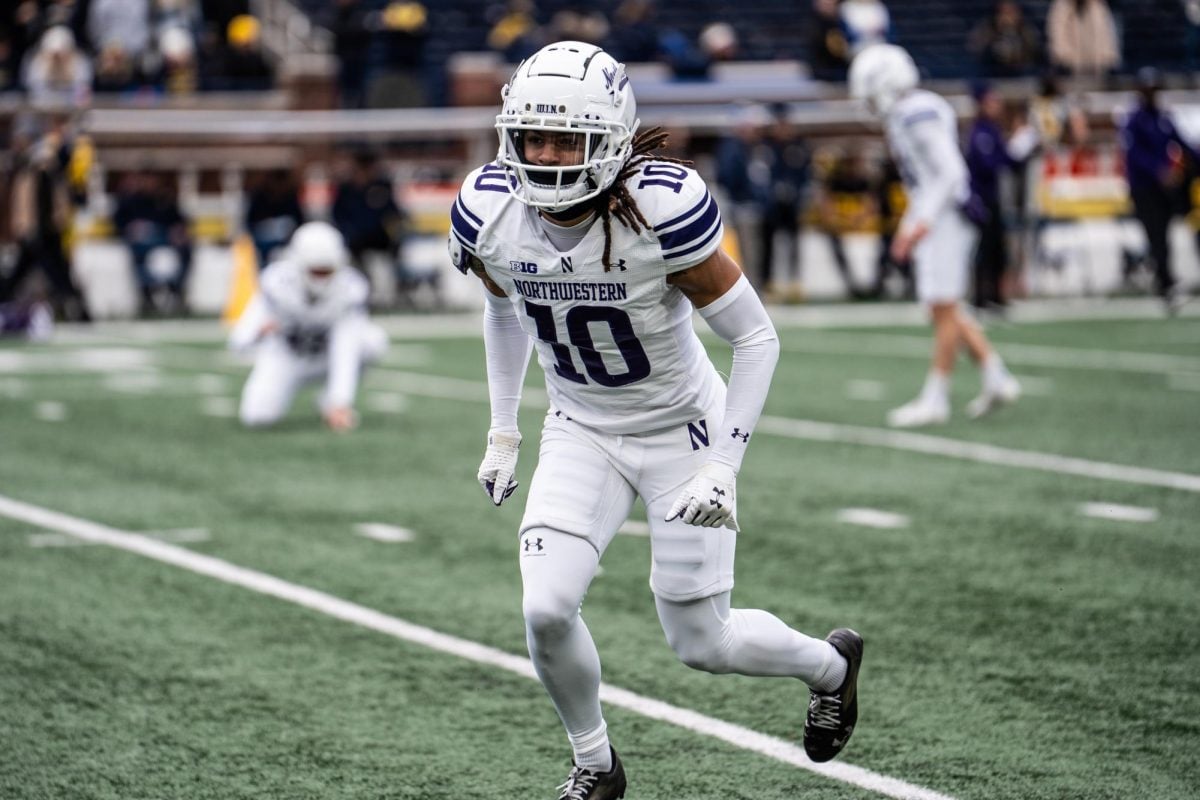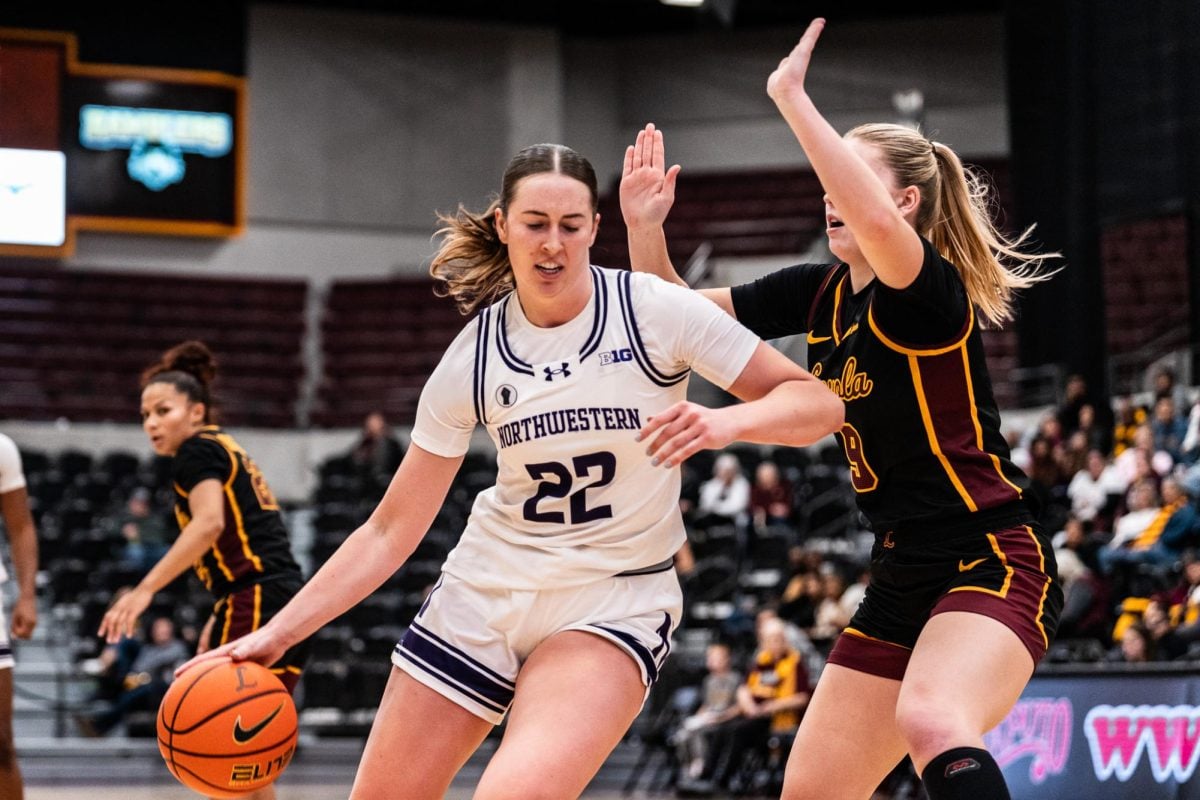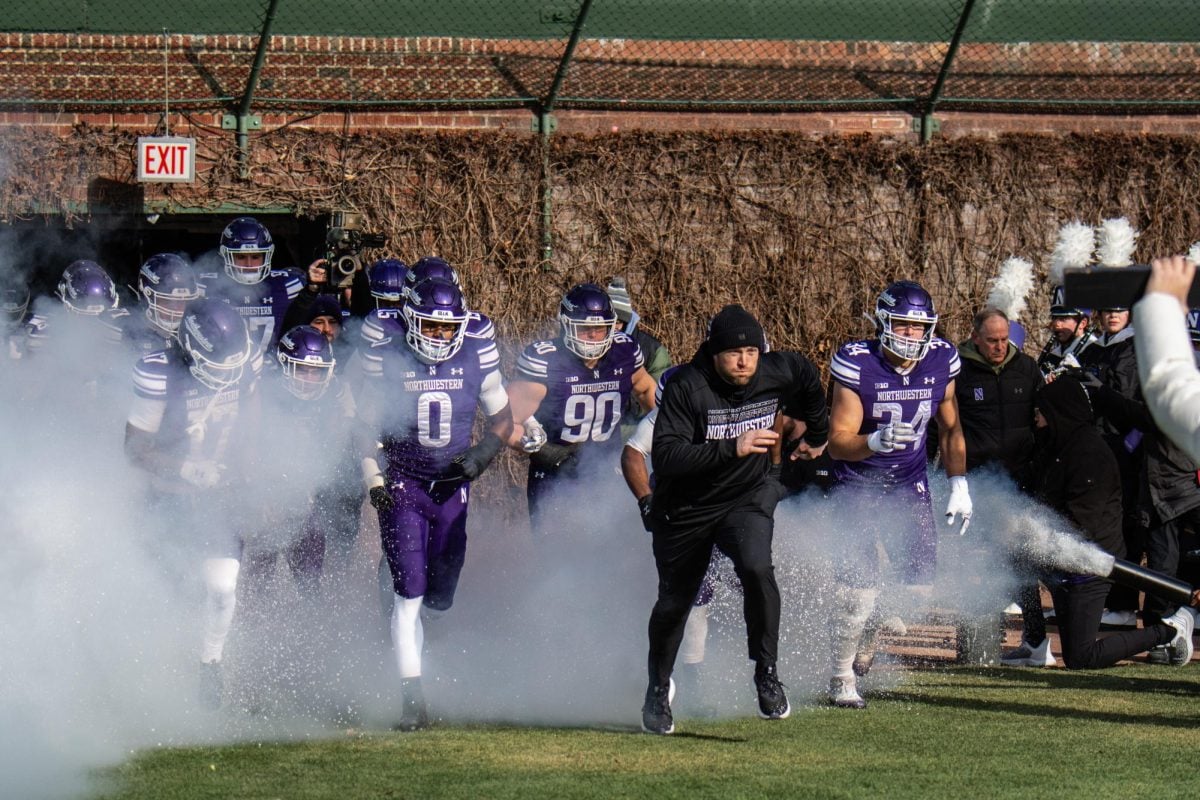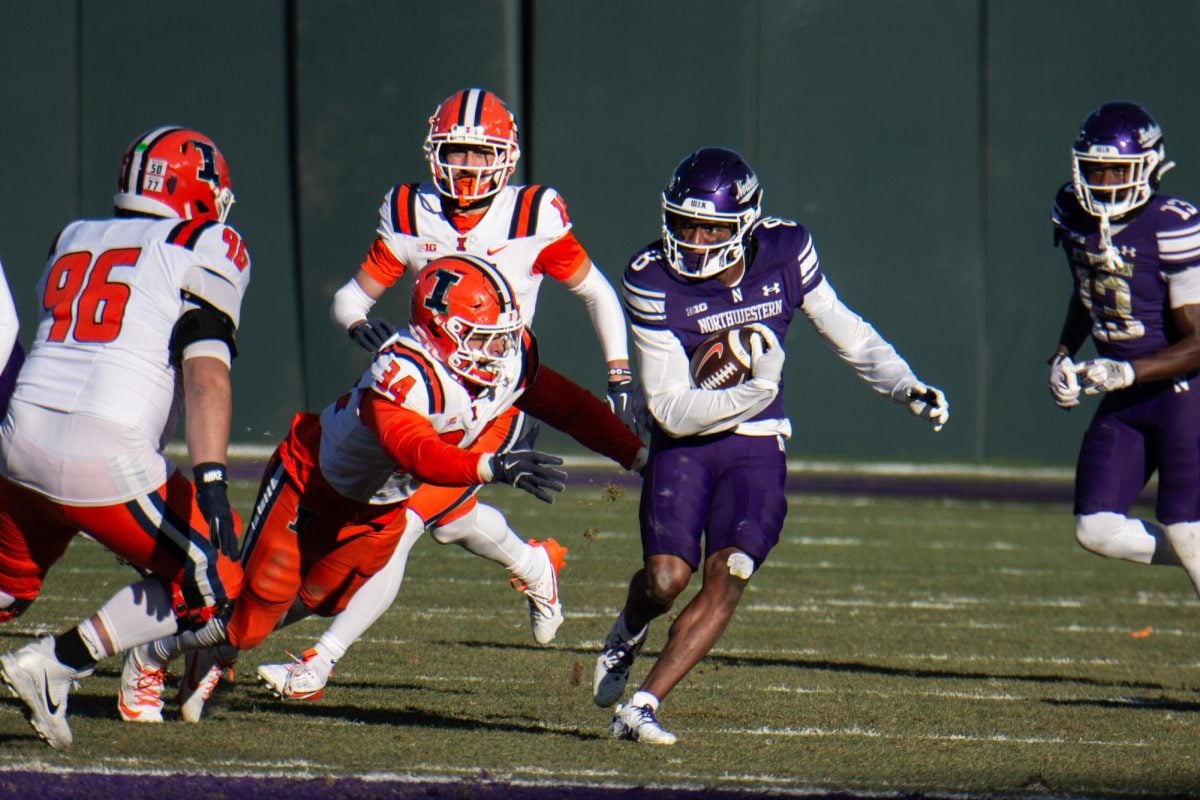NEW YORK — Mere minutes after the NCAA Tournament’s Selection Sunday show began, Welsh-Ryan Arena erupted for the second consecutive season. With their ticket punched to Brooklyn, New York, Chris Collins and his players soared from their purple seats.
As Northwestern received its postseason fate and its first ever back-to-back March Madness bid, Rich Falk — a man who helped write many of the program’s historic phases as a player, coach, administrator and now an observer — watched purple and white confetti soar across the floor.
The Wildcats’ single-game scoring record holder, who poured in 49 points against Iowa in February 1964, bore witness to a new feat for NU more than six decades later.
“Right now, we’re at a point with Chris, his staff and the players he’s been able to recruit and get the most out of, it’s a source of pride for every one of us former players that have had the opportunity to follow the ’Cats living all over the country,” Falk said.
A program pioneer in his own right, Falk engineered the school’s first postseason appearance as a head coach in the 1983 NIT. During the 1982-83 campaign, Falk led NU to an 18-12 record — the ‘Cats’ first winning one since 1968-69.
NU defeated Notre Dame in an opening round Saint Patrick’s Day duel, but Falk’s squad fell to DePaul on a halfcourt heartbreaker to end its dream season in front of more than 18,000 spectators crammed into a standing room only environment.
The ’Cats reached unprecedented heights without two key big men — Colin Murray and Dan Ivankovich — who missed much of the season due to injury.
“We had some credentials, had there not been seven other teams in the Big Ten that year getting into the NCAA Tournament, we would have had a legitimate shot of making that the first year to the NCAA,” Falk said.
When Falk played in Evanston from 1961 to 1964, the NCAA Tournament fielded just 16 teams, meaning a bid hinged upon a conference title. Although NU had amassed a handful of winning Big Ten records in the early 20th century, the postseason remained a pipedream left in then-McGaw Memorial Hall.
After a brief stint in the professional ranks, Falk returned to accept an assistant coaching gig at his alma mater in 1966, where he served until 1969. Then-coach Brad Snyder brought him back on staff three seasons later, and Falk later assisted one of the sport’s legendary coaching minds: Tex Winter.
The pair took a chance on an undersized guard, who’d eventually become the first athlete in school history to have their jersey number retired: Billy McKinney. Falk said it was a joy to coach a player and man of McKinney’s caliber.
“I saw greatness in him when I was recruiting him, and in this case, he lived up to it throughout his career at Northwestern,” Falk said. “You always hear about the great players, you never have to motivate them… Billy was the personification of that. He was just fantastic in every way.”
Falk became the ‘Cats’ head coach in 1978, and he said he was less than pleased with his team’s start to the season. They dropped their opening six conference clashes, and prospects appeared bleak in a stacked Big Ten slate.
Then, NU welcomed Magic Johnson and the eventual national champions Michigan State into McGaw Memorial Hall for a January tilt. Falk’s squad entered the game as 14-point road underdogs and stunned the Spartans before 4,965 fans for Falk’s first conference win as a head coach.
“When you finally get some payoff for all that work, it’s fantastic,” former forward Mike Campbell said. “All of a sudden you get some national prominence … When it actually happens, it’s very gratifying.”
The victory marked one of just two conference wins for the ‘Cats that season. Campbell said the team possessed many complimentary pieces, but NU lacked a superstar poised to elevate the squad to new heights.
The ‘Cats didn’t make a second postseason appearance from the 1982-83 campaign for more than 10 years, snapping the cold stretch in 1993-94.
Amid the 11-year drought, walk-on guard Tony Ling took part in open tryouts in 1990 and 1991. While Ling, a player listed at 5-foot-8 who said he’s really hovering around 5-foot-6, didn’t make the cut during his sophomore year, then-coach Bill E. Foster gave him a roster spot for his junior season in 1991-92.
Ling said NU’s perception has significantly shifted from his playing days. Once considered a doormat, the ‘Cats are now consistently viewed as a formidable foe, he said.
“Really at the heart of it is a cultural change,” Ling said. “Collins has been able to develop a winning culture, and more people come to Northwestern believing they can win.”
While the program knocked at March Madness’ doorstep during Bill Carmody’s tenure in the early 2000s, recording 20 wins for the first time in program history in 2009-10 and 2010-11 and making four consecutive NIT appearances, the Big Dance remained just out of reach.
Falk, who knew Collins’ dad from his days with the Chicago Bulls, said he felt a palpable shift when NU brought in the young Duke assistant in 2013. He said Collins was the perfect fit for the ‘Cats, and seeing the pieces come to fruition with Nate Taphorn’s full-court heave to Dererk Pardon to help punch NU’s first March Madness trip in 2017 was a magical feeling.
Now, Falk said he’s emotionally moved whenever he walks into his former stomping grounds. With a superstar like the one Campbell alluded to in graduate student guard Boo Buie and with new feats consistently on the horizon, the ’Cats are on the cusp of history whenever they step on the floor.
“The thing that reminds me the most of that finish in the NIT in ‘82-83 was the interest level and the excitement that we had from all our fans in Chicagoland in general,” Falk said. “What I’m seeing now in our home gym … In all my years – and I’ve been around Northwestern Basketball forever – I’ve never seen it be that exciting and that much of a factor in helping our team win.”
Email: [email protected]
Twitter: @jakeepste1n
Related Stories:
— Men’s Basketball: Northwestern punches second consecutive March Madness ticket
